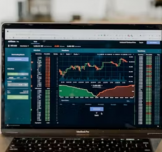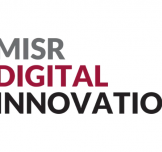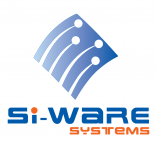Primary Data Insights from Egypt’s EnergyTech and WaterTech Stakeholder Roundtables

To shape a cleantech transition that reflects real market needs, Egypt’s 2025 Clean-Tech & Energy Report incorporated insights from multi-stakeholder roundtables held across the country. These sessions engaged entrepreneurs, investors, government agencies, and researchers to surface the real barriers and opportunities in the current ecosystem. What emerged was a clear alignment between national strategy and ground-level realities along with a call to action for system-wide responsiveness.
Regulatory Clarity as a Foundational Priority
The most frequently cited challenge was the need for clearer, more consistent regulatory frameworks. Many startups and investors expressed concern over fragmented or slow-moving processes, particularly around licensing, compliance, and technology testing. Without predictable rules and streamlined pathways, innovation is delayed and capital is discouraged. A reliable policy environment was widely seen as essential for de-risking early-stage ventures and building investor confidence.
Funding Gaps in Early-Stage Innovation
Access to finance, especially in the seed and pre-seed stages, remains a critical constraint. Founders and incubators pointed to the scarcity of climate-focused investment vehicles, noting that cleantech startups often require longer development timelines, capital-intensive pilots, and more technical validation before commercial deployment. There is a mismatch between available funding instruments and the realities of the cleantech lifecycle.
Infrastructure & Talent Bottlenecks
Participants across governorates highlighted gaps in R&D and prototyping infrastructure. Founders reported challenges accessing testing labs, specialized equipment, and certification facilities, which are vital to moving from idea to market. These constraints were often tied to shortages of specialized technical talent, especially in fields like water reuse engineering, energy efficiency, and emissions monitoring. These talent gaps limit the ability of startups to scale reliably and attract investors.
Opportunity Areas Identified by Stakeholders
Despite these hurdles, participants consistently pointed to emerging areas of innovation that could thrive with the right support:
- Smart metering and digitally integrated energy tools
- Advanced desalination technologies, particularly those locally manufactured and climate-adapted
- Waste-to-energy solutions, including biogas and RDF (refuse-derived fuel) from municipal and agricultural waste
These areas not only address critical infrastructure needs but also represent viable opportunities for startup growth, localization, and export readiness.
Public-Private Collaboration as a Scaling Enabler
The roundtables emphasized the central role of public-private partnerships, particularly those that enable real-world pilots and scalable deployments. Many participants called for the government to act as a first customer offering procurement pathways, demonstration sites, and co-deployment opportunities. This market signal is critical to de-risking technologies and accelerating adoption.
A Blueprint for Cleantech Execution
These roundtable insights don’t just reflect strategy; they validate the roadmap laid out in Egypt’s national cleantech agenda. From regulatory reform to targeted investment and infrastructure readiness, stakeholder voices confirm what the system needs: coordination, commitment, and transformative support to unlock innovation at scale.






































































EgyptInnovate site is not responsible for the content of the comments